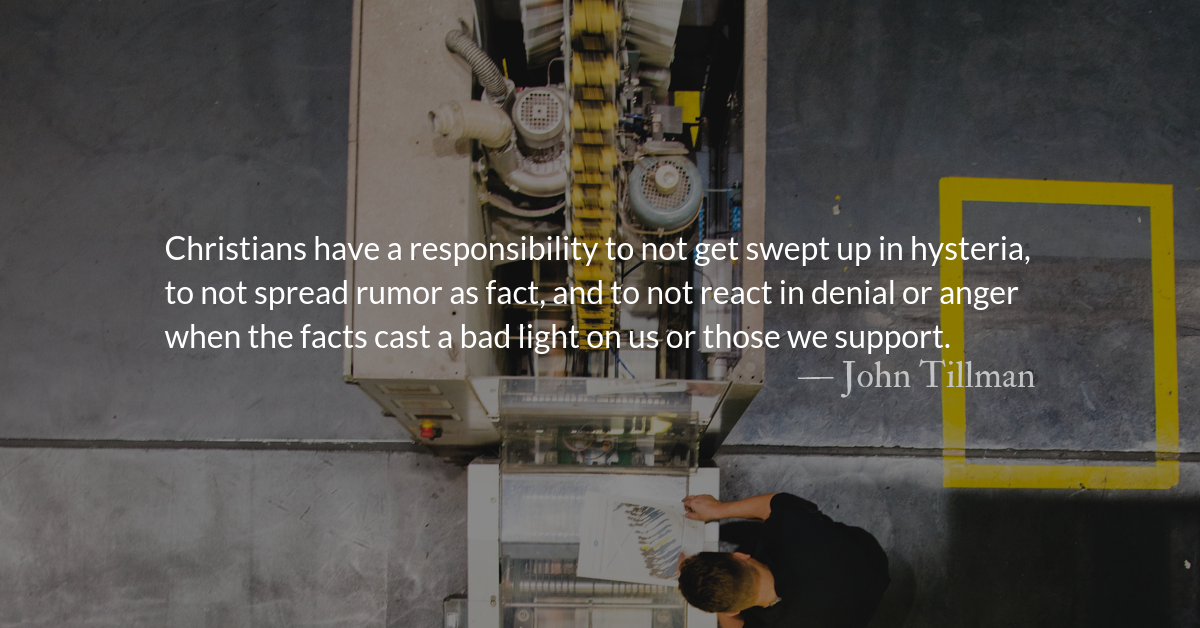Scripture Focus: 1 Thessalonians 2:14-15
For you, brothers and sisters, became imitators of God’s churches in Judea, which are in Christ Jesus: You suffered from your own people the same things those churches suffered from the Jews who killed the Lord Jesus and the prophets and also drove us out.
Acts 17:11
Now the Berean Jews were of more noble character than those in Thessalonica, for they received the message with great eagerness and examined the Scriptures every day to see if what Paul said was true.
Reflection: A Berean Take on Fake News
by John Tillman
Bereans do not have a Pauline epistle in the canon of scripture and the Thessalonians have two. However, the Jews of Berea are described in Acts as being “more noble” than those in Thessalonica. This nobility is characterized by engaging Paul’s teaching with intellectual curiosity and scriptural research.
Paul’s opponents in Thessalonica used tactics that were anti-intellectual and anti-scriptural and we should recognize them from our own Facebook feeds—exaggeration and falsification. Then as now, people ate it up. After they succeeded in running Paul out of town, they followed him to Berea, doxing him as a heretic and a political agitator. Even amongst the “more noble” Bereans, they were still able to cause enough trouble to force Paul to move on.
If you think people today are more sophisticated, more cultured, or more intellectual than those of the ancient world, you have been paying attention neither to ancient history nor to Facebook.
In our day, both progressive-leaning and conservative-leaning publications profit by pot-stirring. While it would be easy to point the finger at the media, we are responsible to choose a “more noble” path as consumers of content. Our sinfulness is the reason that inspiring fervor is much more profitable than dispensing facts and sensationalism is more clickable than sensible reporting.
In our Internet-connected world, cries of “Fake News” reverberate in the insulated echo chambers that we stroll (or scroll) through. These echo chambers are built for us by algorithms whose intent is to keep us scrolling, viewing, and reading and whose strategy is explicitly to not offend us with contradictory data, stories, images, or opinions that we don’t “like.”
Christians shouldn’t rely on algorithms to tell us what is important in the world. That is why we have Scriptures, the Church, and the Holy Spirit. Christians have a responsibility to not get swept up in hysteria, to not spread rumor as fact, and to not react in denial or anger when the facts cast a bad light on us or those we support.
It is bad practice to only trust news from organizations we feel share our values. No news organization shares your values. They value your “shares.” As Ed Stetzer has said, “Facts are our friends.” We need to seek the facts in more places than those that pander to us.
Christians need to develop a more Berean attitude about not only the scripture we read, but the news we share. It’s hard to share the incredible news of the Gospel when the rest of what we share is in-credible
Divine Hours Prayer: The Call to Prayer
Bless our God, you peoples; make the voice of his praise to be heard;
Who holds our souls in life, and will not allow our feet to slip. — Psalm 66:7-8
– From The Divine Hours: Prayers for Autumn and Wintertime by Phyllis Tickle.
Today’s Readings
1 Kings 19 (Listen – 3:53)
1 Thessalonians 2 (Listen – 2:53)
Thank You!
Thank you to our donors who support our readers by making it possible to continue The Park Forum devotionals. This year, The Park Forum audiences opened 200,000 emails with free, and ad-free, devotional content. Follow this link to join our donors with a one-time or a monthly gift.
Read more about Honoring The Truth
Seeking the truth is not only a spiritual quest. It is sometimes a civic one. Or a legal one.
Read more about A Berean Palate
May we develop a discerning, Berean palate that we not only apply to scripture but to our reading of our culture.






